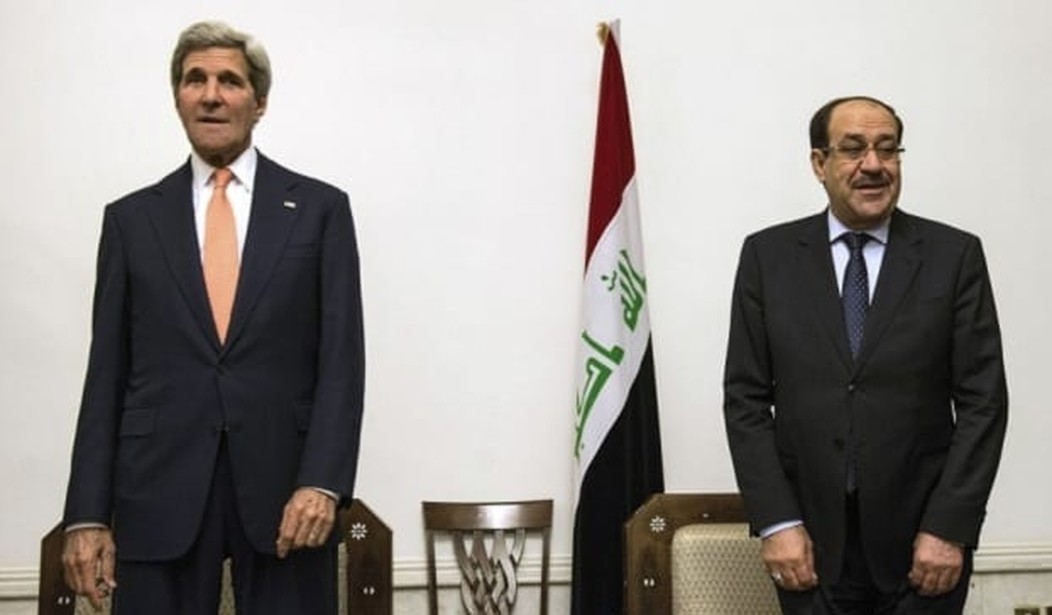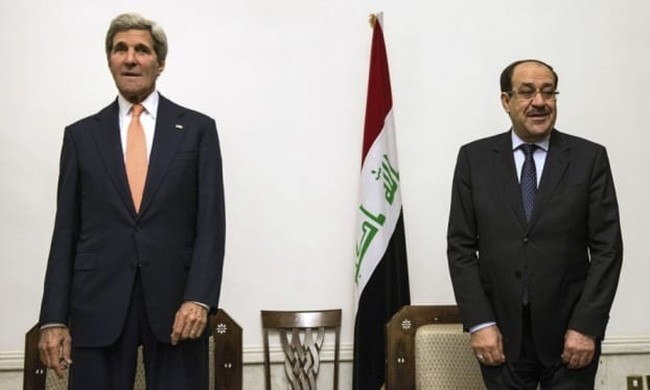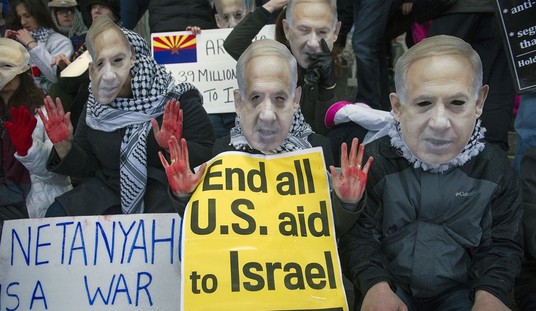Three things have happened in the past weeks that are making it obvious that the nation that has been Iraq since 1919 will soon cease to exist. First, the Turks have spoken in an approving way of the idea of an independent Kurdistan inside of what is now Iraq and has moved to address the issues that have fueled a long running Kurdish insurgency in Turkey. Second, Iraqi Prime Minister Nour al-Maliki has cast his lot firmly and unambiguously with Iran.
In his weekly televised address, Mr Maliki called on “all political forces to reconcile” in the face of a “fierce terrorist onslaught”.
But the Shia prime minister gave no promise of greater representation in government for the minority Sunni Arab community, whose anger at what they say are his sectarian and authoritarian policies has been exploited by jihadist militants from the Islamic State in Iraq and the Levant (Isis).
Mr Maliki said forming an emergency administration that included all religious and ethnic groups would go against the results of April’s parliamentary elections, which were won by his State of Law alliance.
“The dangerous goals of forming a national salvation government are not hidden,” he said. “It is an attempt by those who are against the constitution to eliminate the young democratic process and steal the votes of the voters.”
What makes Maliki’s statement important is that it was made in direct response to entreaties made by our own Forrest Gump of diplomacy, Secretary of State John Kerry, on a visit to Iraq.
His pleas was also ignored by Masoud Barzani, president of the autonomous Kurdish region of Iraq.
Secretary of State John Kerry urged the president of Iraq’s Kurdish autonomous region on Tuesday not to seek his own state and instead help form a government in Baghdad.
“I am going to bring up the elephant in the room,” Mr. Kerry told the president, Masoud Barzani, who serves as the leader of the Iraqi Kurds, a minority who have long sought independence. “This moment requires statesmanship.”
Mr. Kerry’s statements, shared by a senior State Department official who attended the meeting, were prompted by recent comments by Mr. Barzani in an interview with CNN about what he called the need for Kurdish self-determination.
Mr. Barzani neither withdrew those comments nor said that he would take concrete steps to pursue self-determination during his meeting with Mr. Kerry, who traveled to Iraq on Monday as part of an emergency effort to help deal with a growing Sunni insurgency threatening to partition the country.
The third item is that Prime Minister Maliki seems content to concede western Iraq to ISIS with the exception of Baghdad.
Prime Minister Nouri al-Maliki is ready to concede, at least temporarily, the loss of much of Iraq to Sunni insurgents and is instead deploying his best troops to defend Baghdad, Iraqi officials told The Associated Press on Tuesday. The number of troops normally deployed in Baghdad has doubled, the officials said. Significant numbers are defending the Green Zone, the sprawling area on the west bank of the Tigris River that is home to Maliki’s office, as well as the U.S. Embassy.
Once conceded, there is little to know chance that the Iraqi army or the immensely incompetent Iranian army will be able to dislodge ISIS from that territory.
It is amazing how little influence you have when you have neither carrots nor sticks to offer. And Mr. Maliki’s response is hardly surprising when “national unity government” has become administration code for “get rid of Maliki.”
Regardless of how we got into Iraq, and I still believe our invasion in 2003 was the proper thing to do and offer no apologies for my support of that war, the fact remains that this mess is completely the making of Barack Obama’s conscious policy of reducing American influence throughout the world.
When Obama became president he inherited an Iraq that was essentially stable. Al Qaeda had been largely suppressed. The Shia militias had been cowed into submission. Iran was experiencing a low level insurgency in its Arab speaking western provinces of undetermined origins… hmmm. In 2010, Obama and Hillary Clinton used what influence they had to ensure Nour al Maliki was given the chance to form a government even though his party had been badly beaten in parliamentary elections.
His contrived reappointment, coupled with a half-hearted attempt to negotiate a Status of Forces Agreement that resulted in a precipitous US withdrawal from Iraq, led to the resurgence of a Sunni-Shia conflict that had been largely mediated by US forces. Maliki, himself, was at the center of the effort to stoke the conflict as a way of improving his own political chances. The US adventures in Libya and Syria have not only armed al Qaeda and thereby ISIS, those two conflicts have provided a rallying point and training ground for them. This is not even the “flypaper” strategy that Bush was criticized for, this is a “spoiled food in your living room” strategy.
Now that two-thirds of Iraq seem poised to go their own way, the only question left is how Obama will deal with an al Qaeda state located on top of Iraqi oil fields.













Join the conversation as a VIP Member